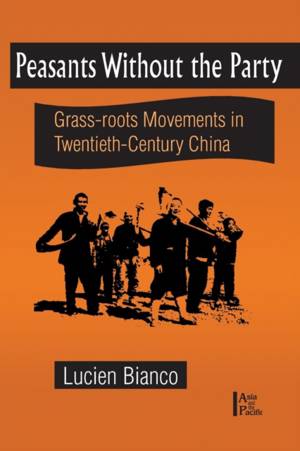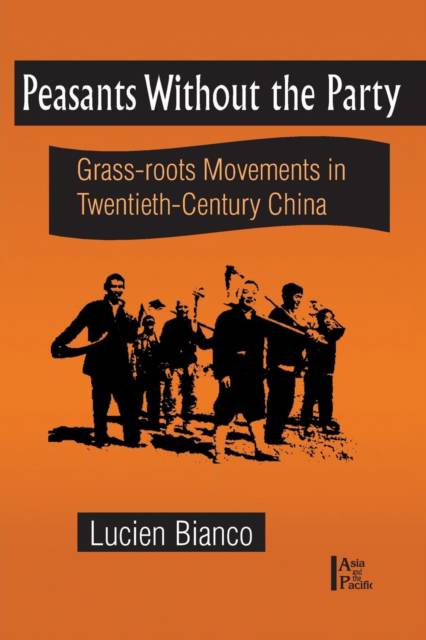
- Retrait gratuit dans votre magasin Club
- 7.000.000 titres dans notre catalogue
- Payer en toute sécurité
- Toujours un magasin près de chez vous
- Retrait gratuit dans votre magasin Club
- 7.000.0000 titres dans notre catalogue
- Payer en toute sécurité
- Toujours un magasin près de chez vous
79,45 €
+ 158 points
Format
Description
Exploring one of the most dynamic and contested regions of the world, this series includes works on political, economic, cultural, and social changes in modern and contemporary Asia and the Pacific. The leading specialist on China's twentieth century peasant resistance reexamines, in bold and original ways, the question: Was the Chinese peasantry a revolutionary force? Where most scholarly attention has focused on Communist-led peasant movements, Bianco's story is one of peasant thought and action largely unmediated by modern political parties. This volume pays particular attention to the first half of the twentieth century when peasant-based conflict, ranging from tax and food protests to secret society conflicts, opium struggles, inter-communal conflicts, and tenant protests over rent, was central to nationwide revolutionary processes.
Spécifications
Parties prenantes
- Auteur(s) :
- Editeur:
Contenu
- Nombre de pages :
- 340
- Langue:
- Anglais
- Collection :
Caractéristiques
- EAN:
- 9781563248405
- Date de parution :
- 31-05-01
- Format:
- Livre broché
- Format numérique:
- Trade paperback (VS)
- Dimensions :
- 154 mm x 230 mm
- Poids :
- 476 g

Les avis
Nous publions uniquement les avis qui respectent les conditions requises. Consultez nos conditions pour les avis.






